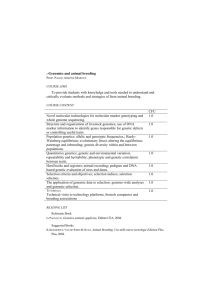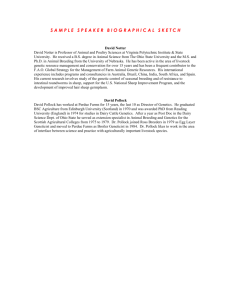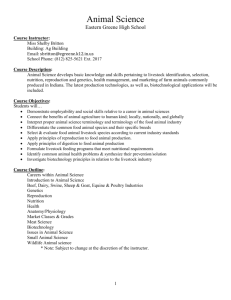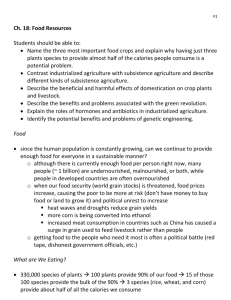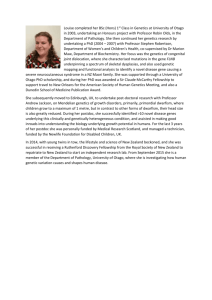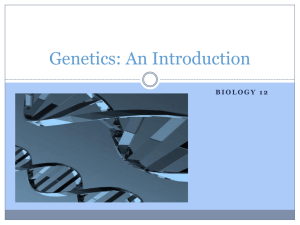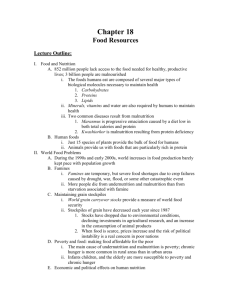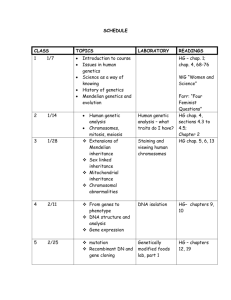Genetics and AgriBiosciences
advertisement
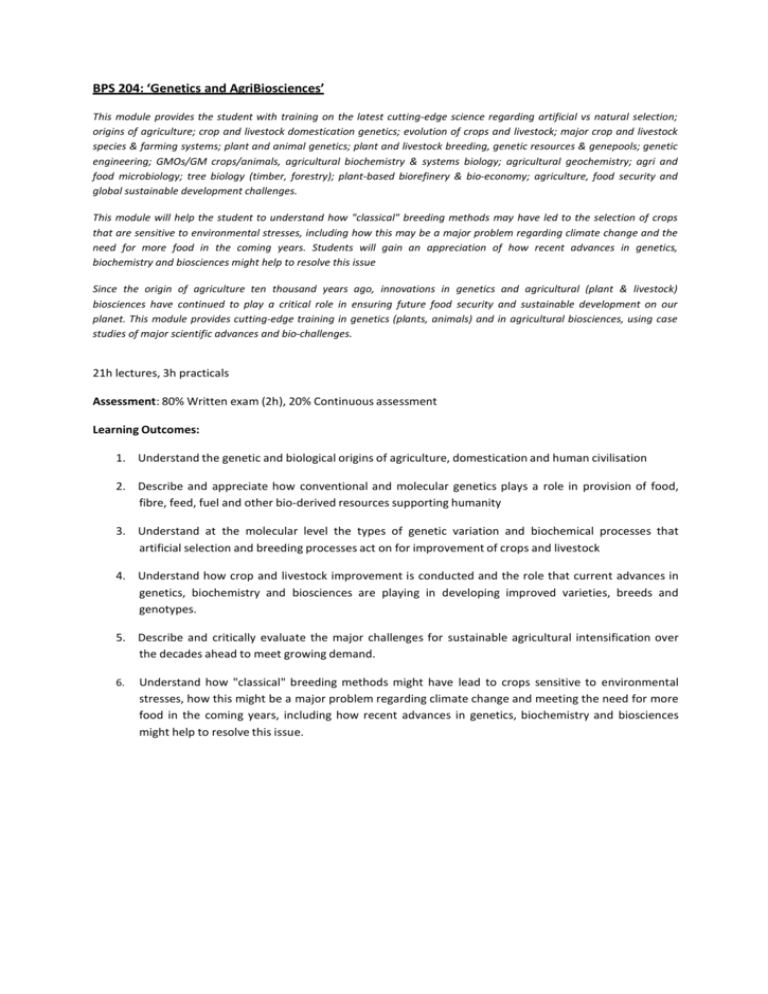
BPS 204: ‘Genetics and AgriBiosciences’ This module provides the student with training on the latest cutting-edge science regarding artificial vs natural selection; origins of agriculture; crop and livestock domestication genetics; evolution of crops and livestock; major crop and livestock species & farming systems; plant and animal genetics; plant and livestock breeding, genetic resources & genepools; genetic engineering; GMOs/GM crops/animals, agricultural biochemistry & systems biology; agricultural geochemistry; agri and food microbiology; tree biology (timber, forestry); plant-based biorefinery & bio-economy; agriculture, food security and global sustainable development challenges. This module will help the student to understand how "classical" breeding methods may have led to the selection of crops that are sensitive to environmental stresses, including how this may be a major problem regarding climate change and the need for more food in the coming years. Students will gain an appreciation of how recent advances in genetics, biochemistry and biosciences might help to resolve this issue Since the origin of agriculture ten thousand years ago, innovations in genetics and agricultural (plant & livestock) biosciences have continued to play a critical role in ensuring future food security and sustainable development on our planet. This module provides cutting-edge training in genetics (plants, animals) and in agricultural biosciences, using case studies of major scientific advances and bio-challenges. 21h lectures, 3h practicals Assessment: 80% Written exam (2h), 20% Continuous assessment Learning Outcomes: 1. Understand the genetic and biological origins of agriculture, domestication and human civilisation 2. Describe and appreciate how conventional and molecular genetics plays a role in provision of food, fibre, feed, fuel and other bio-derived resources supporting humanity 3. Understand at the molecular level the types of genetic variation and biochemical processes that artificial selection and breeding processes act on for improvement of crops and livestock 4. Understand how crop and livestock improvement is conducted and the role that current advances in genetics, biochemistry and biosciences are playing in developing improved varieties, breeds and genotypes. 5. Describe and critically evaluate the major challenges for sustainable agricultural intensification over the decades ahead to meet growing demand. 6. Understand how "classical" breeding methods might have lead to crops sensitive to environmental stresses, how this might be a major problem regarding climate change and meeting the need for more food in the coming years, including how recent advances in genetics, biochemistry and biosciences might help to resolve this issue.
